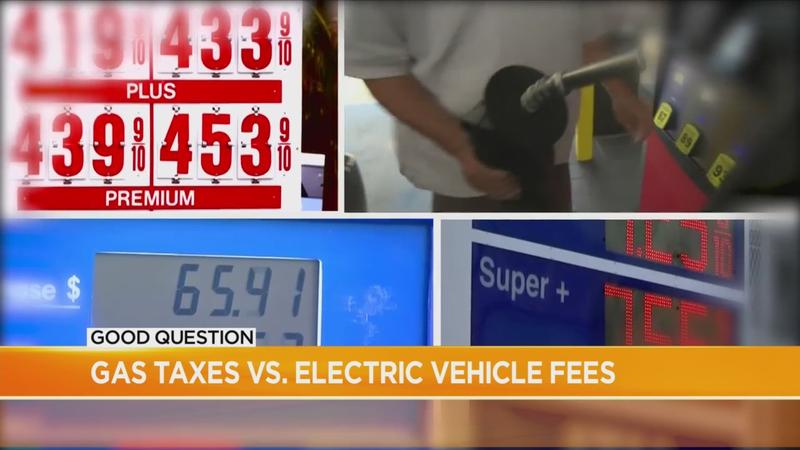Good Question: Gas taxes vs. electric vehicle fees
[anvplayer video=”5096167″ station=”998131″]
This is a follow-up to a recent Good Question.
News10NBC’s Brennan Somers answered about rising gas prices and the special tax you pay every time you fill-up the car.
But what if your car doesn’t run on gas?
A viewer asked: I just read your interesting story on the taxes we are charged on gas when we fill up at the pumps. So that makes me curious about the taxes people are charged when they charge their electric cars. Adding all this additional electric use to the grid is already coming at a cost to all homeowners as our electric bills have gone up so are car electric fill-ups being charged fairly?
For starters, gas is around $4.40 a gallon right now. Nearly $0.70 of that covers just taxes and fees. Add it all up and you’re looking at $70 on a 16-gallon tank.
For comparison let’s look at electric vehicles. Here’s what Somers got from electric vehicle experts at AAA:
- Public Level 2 Charging – In New York State, the average cost per Kwh is $0.40. A full charge is approximately $32.20.
- Tesla Supercharger- In New York State the average cost per Kwh is $0.25. A full charge is approximately $22.00.
Is part of that just a tax for giving your electric vehicle a full boost? Nope, but it’s not completely tax-free.

The New York State Tax and Finance Department told Somers "There is no specific or additional tax or fee on EV charging, but the department has opined that the sale of electricity from an EV charging station is a sale of electricity subject to state and local sales tax."
For most of us, that’s 8% on the sale.
New York is in the minority when it comes to this issue as noted by the National Conference on State Legislatures. There are many other states, at least 30 of them, that do charge a fee on plug-in electric vehicles, and more than a dozen states put also fees on plug-in hybrids. This can cost drivers $50 to a few hundred bucks a year.
The idea behind these proposals is to make up for lost gas tax revenue. That yearly fee is kind of a substitute for what you would’ve paid at the gas station.
Again, New York State doesn’t do this — at least not yet.